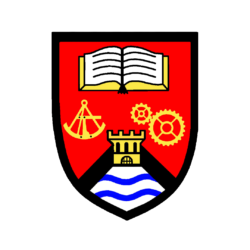Faculty of:
Humanities
Head of Faculty:
Ms L. Specchia
Head of Department:
Ms L. Specchia
Members of staff:
- Mr W. Miah
- Ms E. Koranteng
- Mr Y. Miah
- Mr I. Enemough
About the department
Religious Education helps students to examine their own beliefs and sense of meaning and purpose in life and to investigate and understand what religious faith and non-religious beliefs mean to other people. Students are given the opportunity to express their own thoughts and opinions and show understanding of other points of view which are different from their own. RE also helps them to appreciate the diversity of the people around them, of religious faith and none, and develop an understanding of how people of different backgrounds can work together to build strong communities.
Key stage 3 Curriculum:
In Year 7, students study RE as part of integrated Humanities Curriculum, alongside other subjects such as History, Geography and Citizenship. Students have five lessons a week. They learn about the key beliefs and practices of the six main religions in the UK and non-religious belief systems.
Key skills:
– Explaining beliefs and practices
– Using Sources to justify points
– Empathising with others
In Year 8, students continue to learn about the six main religions and alternative non-religious belief systems such as Humanism. Students study topics and ultimate questions in depth. RE is taught for two lessons per week.
We study thematically and the units are:
- Purpose of Life
- Forgiveness
- Science and Religion
- Religion, Peace and Conflict
- Spirited Arts
- The Abrahamic Faiths
By Year 9, students have a solid knowledge on the key beliefs and practices of the six religions. They start off their learning about Israel and Palestine and the history of why Jerusalem is such a sacred place. They also look at what three Abrahamic religions teach about Peace. By the second half term Year 9 focus on learning about Islam and Christianity in depth which gives them an opportunity to evaluate and make comparisons between belief systems. They also are taught about non-religious belief systems and views about each topic they learn in order to write about divergent viewpoints.
In Year 9 we study the following topics:
- Israel and Palestine
- Muslim Beliefs
- Christian Beliefs
- Living the Muslim Life
- Living the Christian Life
Key stage 4 Curriculum:
GCSE Religious Studies.
All students are required to sit full course GCSE in RS. By the end of Year 11 students sit two exams and each exam is worth 50% of their final grade.
In 10, we study the following topics:
- Living the Muslim Life
- Living the Christian Life
- Marriage and the Family
- Philosophy of Religion
In Year 11, we study the following topics:
11. Marriage and Family
Students are assessed on:
- Their knowledge of religious beliefs.
- The way in which they explain the importance and impact of religious teachings/beliefs.
- Use of Sources of Wisdom to explain points.
- Give justified judgements and appraisal of arguments
- Their personal response to a religious or moral statement and how they are able to show understanding of a point of view of someone who disagrees with them.
Exam board: Edexcel: Specification B- Islam and Christianity

